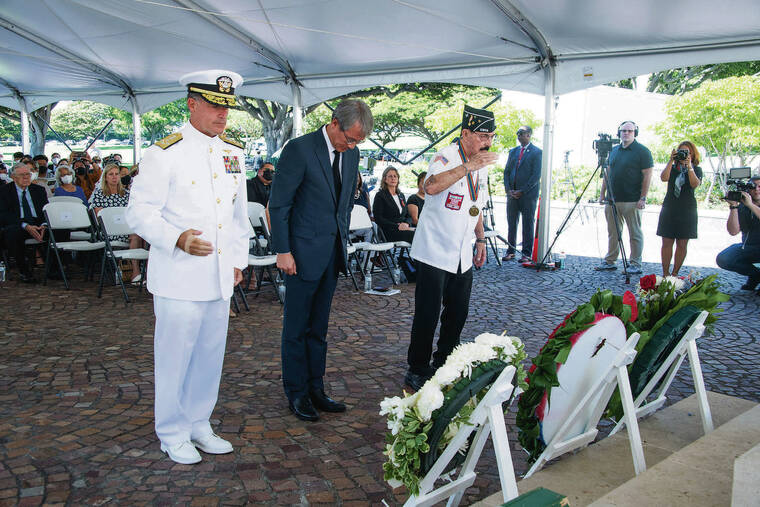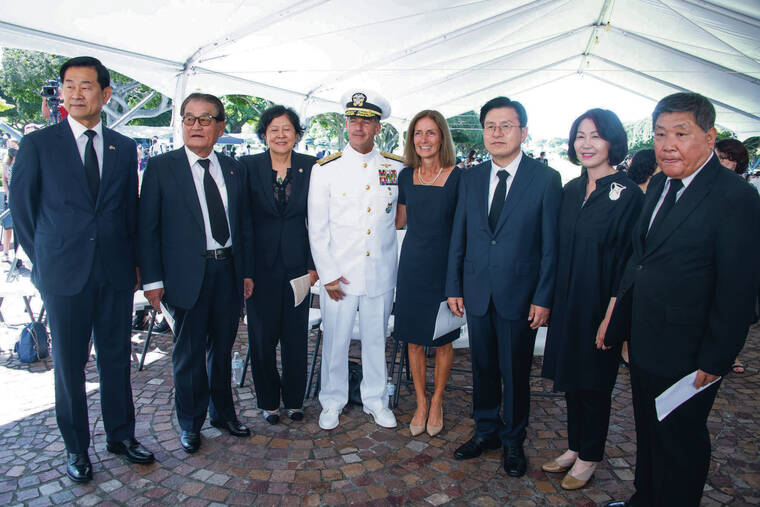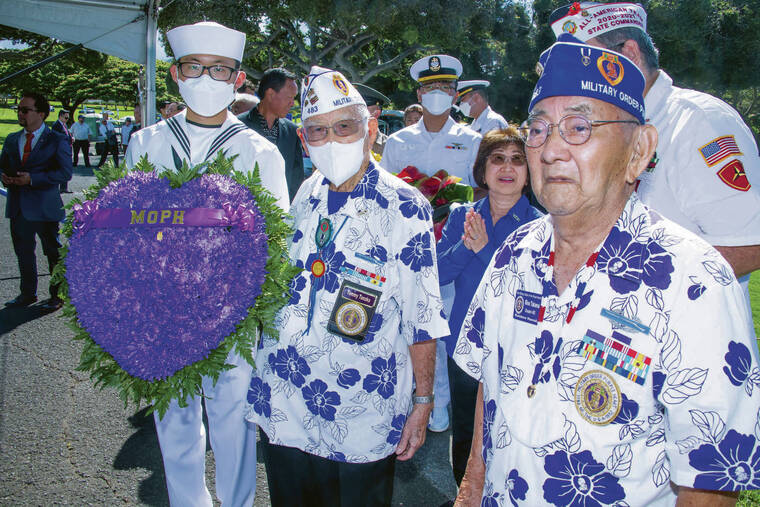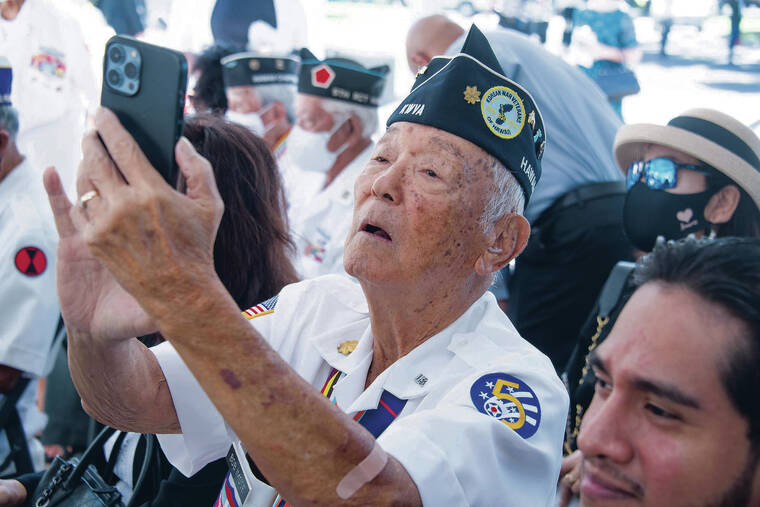Military veterans, dignitaries and community members gathered Saturday at the National Cemetery of the Pacific at Punchbowl to commemorate the 72nd anniversary of the outbreak of the Korean War, a conflict that claimed the lives of 456 Hawaii residents.
The ceremony, hosted by Consulate General of the Republic of Korea and the Korean War Veterans’ Association Hawaii Chapter 1, also was attended by Korean sailors and marines who recently arrived in Hawaii to participate in the biennial Rim of the Pacific exercise, the world’s largest recurring naval war game. South Korea is one of 26 countries participating in the exercise.
Consul General Hong Seok-in thanked the veterans in attendance, saying, “We Koreans will never forget what you have done for us.”
U.S. forces first arrived in Korea in 1945 to accept the surrender of Japanese forces that had occupied the peninsula for decades. The Americans occupied the southern half while the Soviet Union occupied the northern half, setting up separate governments.
Syngman Rhee, a controversial Korean independence activist who had spent years in exile in Honolulu, became the first president of the newly formed Republic of Korea in 1948 as American troops withdrew. But in 1950, the Soviet-backed North Korean government of Kim Il-sung invaded the south.
The United Nations Security Council passed a security resolution calling on member states to aid South Korea and stop the invasion. U.S. troops returned to the country along with troops from 21 other nations to repel the invasion.
The conflict would last three years, eventually drawing in China, and lead to the deaths of nearly 5 million people.
“It is altogether fitting and proper that we reflect on this conflict and consider how we might avoid such events in the future,” said U.S. Indo-Pacific Command chief Adm. John Aquilino, who gave the keynote speech.
During his remarks, Aquilino criticized North Korea for being one of only five countries to officially support Russia’s invasion of Ukraine and warned that authoritarian governments around the world are watching that ongoing conflict.
South Korea sent its largest contingent yet for RIMPAC 2022 with three ships, a submarine and marines. Tension between the two Koreas has been heightened by several new missile tests. South Korean leaders also have accused both the Chinese navy and fishing fleet of encroaching into the country’s ocean territories.
“In total, approximately 1,000 sailors and marines from Korea are joining the U.S. and our partners in the Pacific to demonstrate our resolve and commitment to maintaining peace and stability in the Indo-Pacific region and beyond,” Hong told the crowd.
The youngest of those Korean sailors, 19-year-old Seaman Ahn Jun Sung, addressed the veterans through an interpreter, telling them that their service had saved his nation and paved the way toward a prosperous future. Though authoritarian leaders largely dominated South Korean politics, since 1988 it has been a democracy with a growing economy.
“We were once a country in need for the world’s aid, and now we are a country that offers the world aid,” said Ahn. “We were one of the world’s poorest nations; now we emerge as one of the world’s top 10 economic powerhouses. We stand as a dignified democratic nation, we stand as an instigating cultural inspiration through the Korean wave, powered by K-pop and film.”
During the ceremony, Korean children presented the veterans who were present with Korean Ambassador For Peace Medals, a recognition the South Korean government has bestowed on veterans of the U.N. coalition since 1975.
Korean War veteran Ken Tashiro, 92, said it felt great to receive the honor. He explained that for him, it was important to be at Punchbowl to remember the conflict.
“Every year there’s less of us,” said Tashiro.
The Korean War has been called “the forgotten war.” Despite its high stakes, bloody costs and world- changing consequences, it has been in many ways overshadowed in American memory by World War II and the Vietnam War.
When asked what he would most want Americans to remember about the conflict, Tashiro said: “It was a war we didn’t invite, but we went anyway.”








